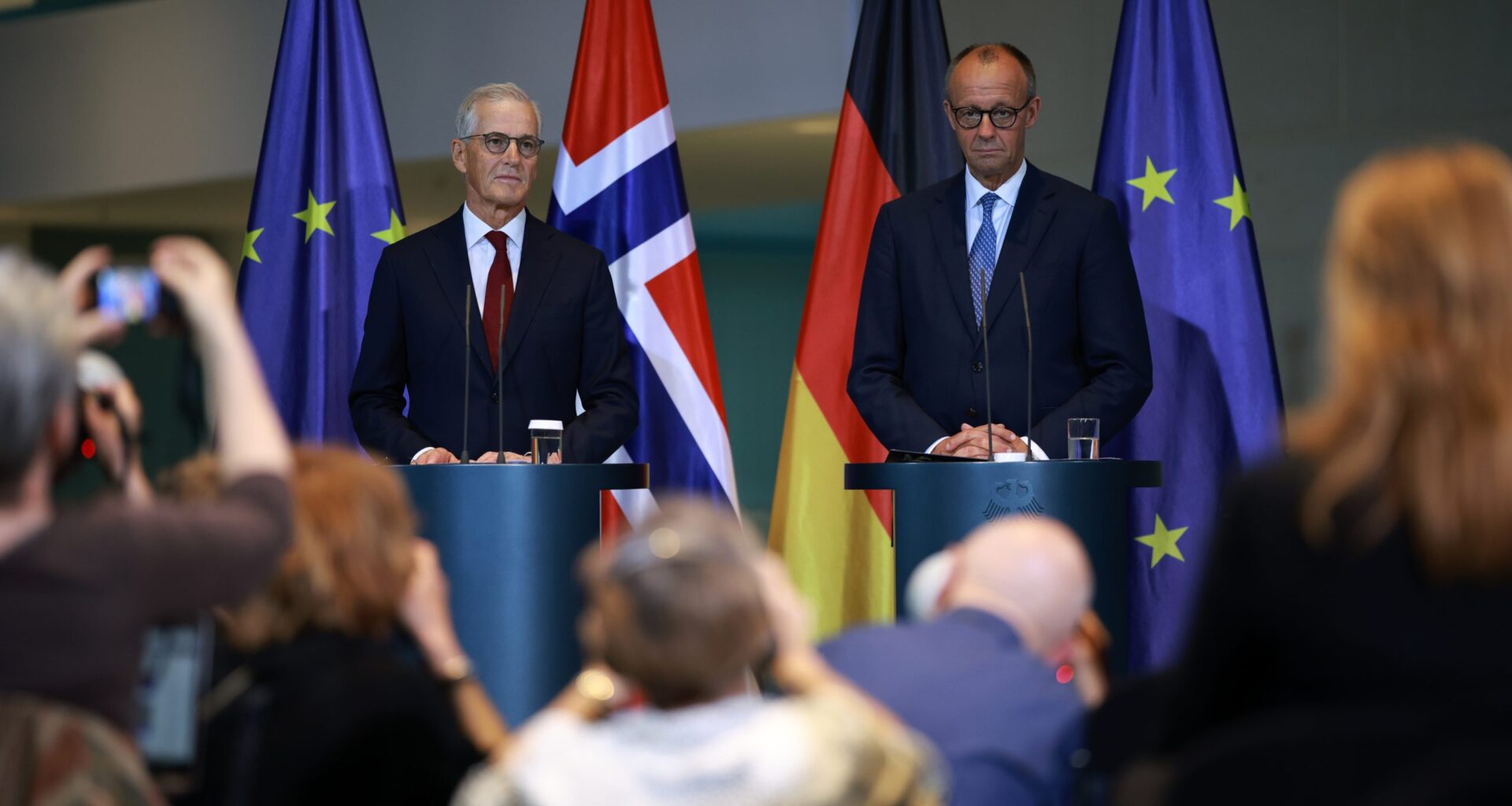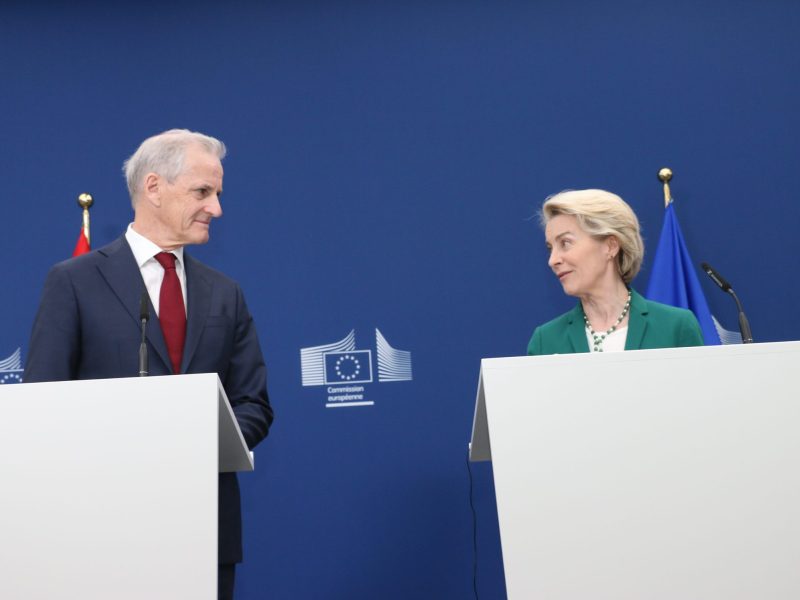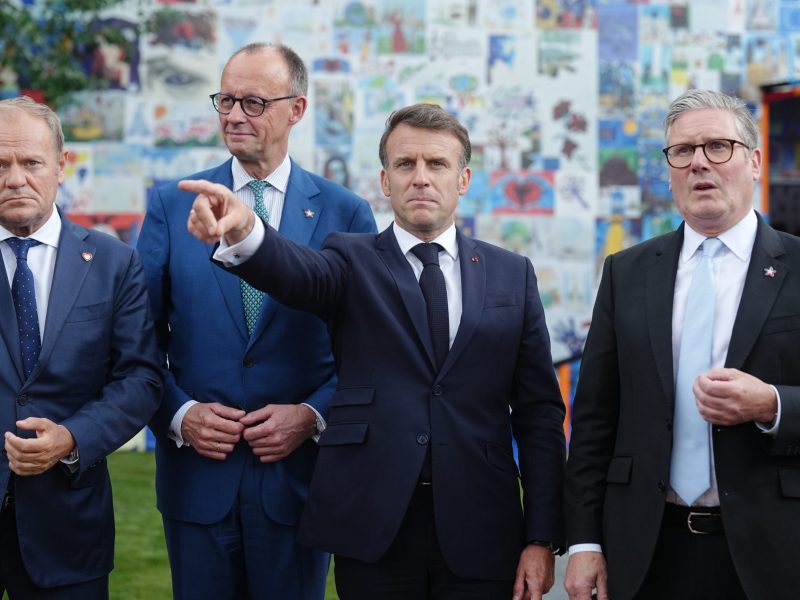BERLIN – Germany and Norway announced on Monday evening that they are drawing up a bilateral defence treaty, the latest in a series of recent security agreements between European countries.
The treaty, to be prepared by both defence ministers, is supposed to cement the countries’ defence cooperation, which has intensified since the start of Russia’s full-scale invasion of Ukraine.
Berlin and Oslo are among the primary supporters of a recent initiative of European NATO members to buy US-made defence equipment for Ukraine.
Their defence ministers have also pushed NATO to improve protection of European underwater infrastructure amid concerns of suspected acts of sabotage, attributed to Russia and China, in recent months.
In a joint declaration released on Monday, Germany and Norway stressed that their close partnership was grounded in “common values”, reaffirming their joint engagement for maritime security as well as closer cooperation on land and even space.
Bilateral momentum
The planned treaty would add to wider efforts to strengthen European defence structures via bilateral agreements, facing threats from Russia and America’s potential withdrawal from the continent’s security architecture under Donald Trump.
“If there is anything good about this terrible war in Ukraine, it is that it brings us Europeans together,” Chancellor Friedrich Merz said at a press conference with his Norwegian counterpart, Jonas Gahr Støre, in Berlin.
The push focuses on non-EU members such as Norway and Britain, he added, but stressed that this was “not a contradiction to our European policy.”
The agreements are being struck in parallel to NATO’s defence structures, which already bind most European allies.
Last week, Germany signed a comprehensive treaty with the UK, called the Kensington treaty, which includes a commitment to a closer security partnership, based on last year’s ministerial cooperation agreement.
Just a few days earlier, Britain and France had announced that they would start coordinating their independent nuclear deterrence for the first time. Paris and Berlin are also planning to intensify their defence relations later this summer.
All three countries are now bound by independent mutual assistance agreements, to complement NATO’s Article 5 agreement.
They form the informal E3 group, which has seen a revival in recent months in line with other multilateral formats, is increasingly used to chart a joint course on foreign and security policy, where the EU has no competence.
(mm)


